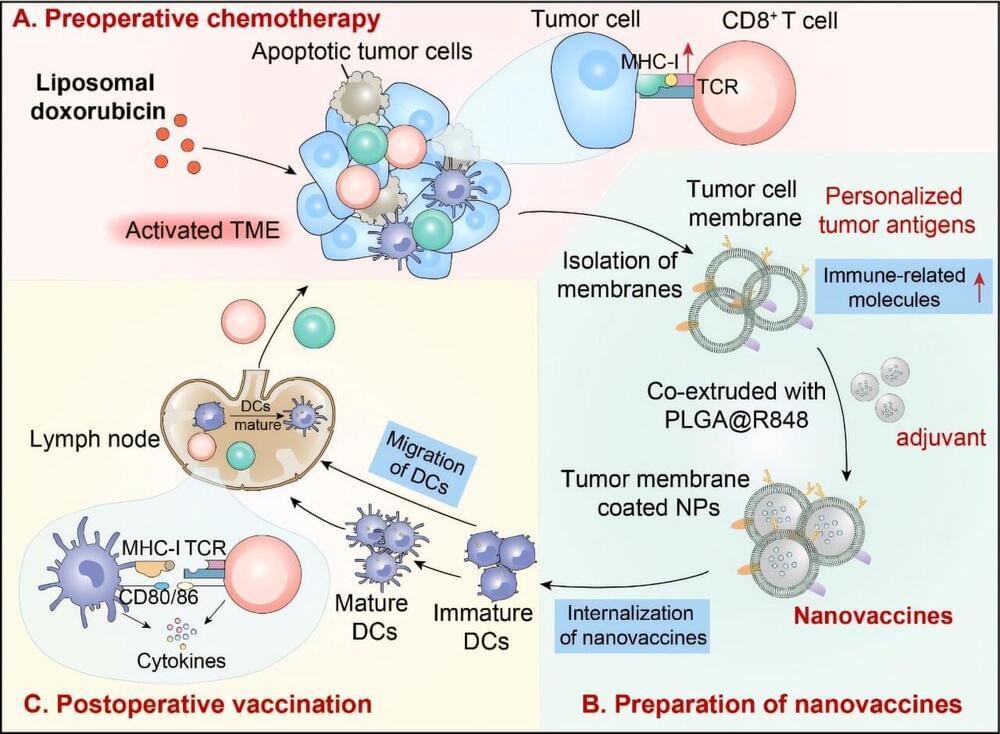A research team led by Prof. Nie Guangjun from the National Center for Nanoscience and Technology (NCNST) of the Chinese Academy of Sciences (CAS) and collaborators have demonstrated a tumor membrane antigens-based nanovaccine derived from liposomal doxorubicin treated tumor tissues, which is efficacious in inducing a potent immunological defense against tumors. The study is published online in Cell Reports Medicine.
For solid tumor surgeries, challenges remain in postoperative tumor recurrence and metastasis. The correlation between postoperative tumor recurrence and metastasis and the host’s antitumor immune status is well-established. Personalized cancer vaccines, using the patient’s own tumor as an antigen source, stimulate a robust immune response that is efficacious in eliminating residual neoplastic foci following surgical intervention as well as in targeting metastatic lesions at a distance, significantly reducing the risk of postoperative tumor recurrence and metastasis.
The efficacy of autologous tumor cells in clinical trials has been limited by their weak immunogenicity. The tumor membrane contains tumor-presented antigens and associated antigens, which can be developed into a personalized antigen library that more accurately reflects the expression of tumor antigens. Vaccines based on autologous tumor cell membrane antigens have been developed.
